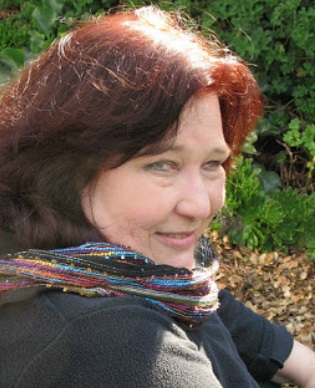
The following is an excerpt from Anne R. Allen’s December 22, 2019 blog post. You, too, can be an indie-author. It helps to be informed with willingness to do the work.
From Anne:
In a few days we’ll be leaving the twenty-teens to enter the 2020s. We’ll be saying goodbye to a decade of wild upheaval in the publishing industry.
It’s been quite a ride.
On January 5th, [we hosted] agent Laurie McLean from Fuse Literary Agency, for her annual “Crystal Ball” predictions for publishing in 2020.
But today I’m thinking about the decade that’s passing, and how it disrupted and radically changed the way authors approach publication.
A lot of us got to behave like teens—experimenting with radical publishing ideas and trying on lots of new writing venues for size.
Amazon’s Kindle had the right name. It fired up the writing community in a major way. Self-publishing became a viable, lucrative alternative to the soul-crushing process of breaking into traditional publishing.
But now things are changing again. Sales of Kindles and other ereaders are way down. A lot of indie authors have disappeared.
Is the Self-Publishing Revolution Over?
Experts agree the “Kindle gold rush” is history.
But self-publishing is still here.
However, it has gone through drastic changes since 2010.
In the early days, there weren’t many ebooks for Amazon to sell to their newly-minted Kindle owners. So they encouraged writers to publish their own work through their new “Kindle Direct Publishing” (KDP.)
But then Amazon started its own publishing imprints like Montlake, Thomas and Mercer, Lake Union, etc. They wanted to market their own publishing companies.
Then came Kindle Unlimited, the book service that allows unlimited reads per month for a flat fee.
Indie incomes went down a lot more.
A swarm of scammers, plagiarizers, and crooks learned to game the KU system and top the charts with stuffed, fake, and stolen books.
Real indies lost out.
Readers left Facebook’s privacy-invading machine. And new algorithms no longer let as many readers see our author pages.
Indie incomes went down a bit more.
E-books were the bread and butter of the self-publishing revolution, but as people started reading more on glaring tablets and phones, they rediscovered paper books.
Big tech, which had once seemed so friendly to indie authors, became a minefield.
But the Self-Publishing Revolution Didn’t Die
It’s true that indie sales are more modest than they were mid-decade, and you’re not hearing about any new “Kindle Millionaires.”
But a lot of indies are still thriving.
Many romance, mystery, and thriller writers who joined the self-publishing revolution are now making a good deal more than their trad-pubbed counterparts.
Others are happily plugging along, not making a big income, but enjoying writing as a second job or hobby.
Self-publishing is still an excellent way to publish. But it’s not the same as it was in 2010.
Indies now need to have the training and capital to turn out a top-notch product and advertise it. They also have to be willing to learn the ropes of online marketing and put in the time with social media to build a following. They need to allot the time to put out a blog or newsletter.
Self-publishing allows you to control your career. You’re not dealing with agents or editors who might ghost you, get fired, rope you into predatory contracts, or lose their marbles. (The majority of agents are honest and hardworking, but their incomes are falling with decreasing advances, and many simply can’t make ends meet without a second job.)
My Advice
Don’t choose self-publishing as the “easy” way to a writing career in the new decade. Choose it because you have an entrepreneurial spirit, enjoy social media and online marketing, and have the time to commit to running a business.
Should You Plan to Self-Publish in the Next Decade?
Only you know that. Do you write fast? Write in a popular genre? Have good marketing skills? Enjoy social media? Do you blog? Are you okay knowing you won’t be nominated for a prestigious book prize or get a review in The New Yorker?
A “yes” to most of those questions would make you an excellent candidate. The only other big thing you’ll need is luck.
So good luck to you. The 2020s may be the time your career soars!
Click here for Anne’s full blog post with almost 100 comments.
About Anne R. Allen
My books are mostly romantic-comedy/mysteries. Maybe a little more comic than romantic. Since two of my favorite writers are Dorothy Parker and Dorothy L. Sayers, I guess it makes sense that I ended up writing a mash-up of the two “Dorothy” styles. Ruth Harris calls it “Chick Lit Noir.”
I’ve been in the writing business long enough to have collected a pretty full set of mistakes. I blog in hopes of helping some of the new writers out there make better choices.
In a former life I was an actress, bookseller, and the former artistic director of the Patio Playhouse in Escondido, CA. I last appeared in A Comedy of Errors at the Pacific Conservatory of the Performing Arts. I grew up in New England (Waterville, ME and various college towns in CT) graduated from Bryn Mawr College, and spent some time doing the hippie vagabond thing in several continents. Even got married once. All excellent adventures.
I’m the author of 10 comic mysteries and a collection of short stories and poems. I’m also the co-author of a guidebook for writers, written with Amazon superstar Catherine Ryan Hyde, and I’ve written a new guidebook for author-bloggers: The Author Blog: Easy Blogging for Busy Authors.
All my book-length works are detailed on my book page.